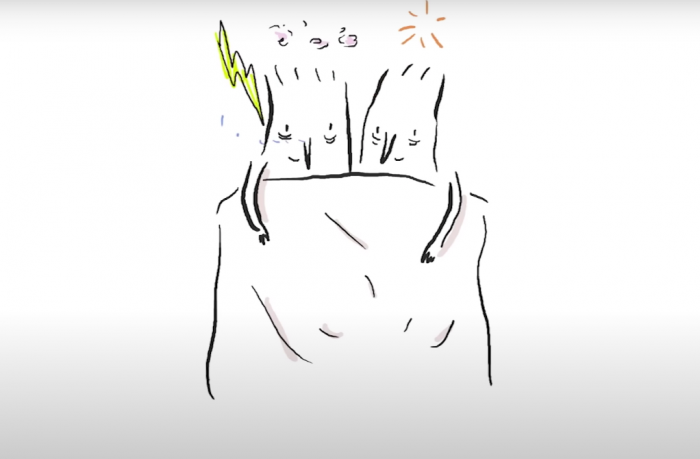Just a year ago, I went into a phase of extreme asexuality, and I was convinced I’ll be okay being alone, loveless.
I had selective amnesia and forgot about all the exhilarating and emotionally twisting roller-coaster ride “being in love” and “breaking in love” put me into just two years ago.
My life is better off that way—or so I thought.
Yet I eventually found myself again pinning my romantic hopes and dreams on someone. And now, the familiar heavenly and hellish feelings I had with seeking love come rushing back in.
They say love should find you and not the other way around. But whether the love bug finds you or you catch it—it’s still the same.
You will start entertaining romantic hopes and dreams with the object of your affection, and you’ll find yourself longing or seeking love again. A love that’s when properly reciprocated and matched (based on your conscious or subconscious standards) can create a heaven here on earth for you and hell if not.
So why do we seek love anyway?
A duo of modern philosophers (Lisa Labracio and Skye C. Cleary) set out to find the philosophical answer for us and summarized what they found out in a short entertaining video:
Based on their research, there are five major philosophical perspectives as to why we love as follows:
1. Love makes us whole, again.
Again is emphasized here, and that’s because, according to Plato in his Symposium, we humans were originally with four arms, four legs, and two faces. Zeus, out of fear of our dominion cut us in two and that’s why we’re always wired to look for another person to complete us again.
2. Love is nature’s trick for us to procreate.
German philosopher Arthur Schopenhauer contends that love is just an illusion. For him, love is merely a sexual instinct that masks itself as passion and romance to ensure we’ll continue procreating and consequently prevent extinction of the human species.
3. Love inspires and produces a good life.
Opposing Schopenhauer’s take on love, comes the British philosopher Bertrand Russell who thinks highly about love because for him it “enriches our whole being, making it the best thing in life.” He believes that it’s love delight, intimacy, and warmth that we really seek to protect ourselves from our naturally cruel world and eventually lets us out in our own protective shells.
4. Love is one of our worldly attachments.
Gautama Buddha recognizes love as one of our basic desires, a form of attachment that makes us suffer in life. According to his teaching, love should really start from loving ourselves, and only then can we start to love unconditionally and allow love to let us have a good and satisfying life.
5. Love gives human existence meaning.
Somewhat supporting Russell’s viewpoint about why we love, French philosopher Simone de Beauvoir believes that we have the innate desire to integrate with another human being to support us in living life meaningfully. However, it is important to note that while Beauvoir believes love is an integral structure of human experience, it has to be authentic, to bring forth the best of ourselves and our partners.
Illuminating, isn’t it?
I think the most salient takeaway we can get out of these theories is that love is not a consuming, mystical, and fatalistic experience (just like what the media likes to present us on how and what it is supposed to be).
It is a conscious decision of seeking and offering yourself unconditionally to another human being you have chosen and have chosen you, while also making sure both of you don’t lose a sense of individuality in the process.
Whatever leanings we have as to why we seek love and why we love, may we make sure we are only enriching ourselves and our partners’ lives in the journey.
Love could never be a smooth-sailing experience given the differences and neuroses we do offer on the table. We can also only adjust our own sails in our romantic journey given that we cannot direct the winds of life itself, which is full of impermanence and humbling or mind-blowing surprises.
But regardless of where love could lead us, let’s love anyway, huh?
Now here’s a song for you:











Read 1 comment and reply